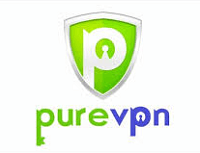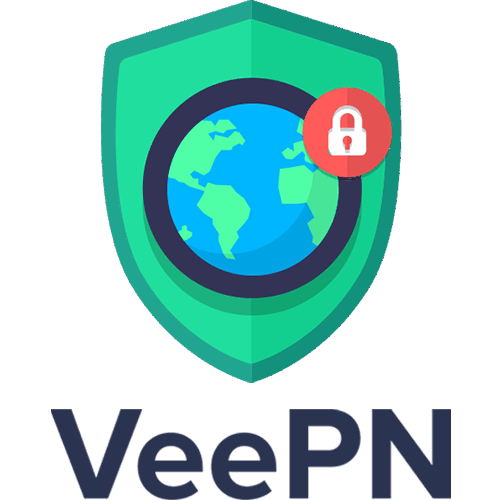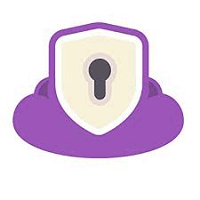Yes, VPN software is intended to allow safe and private internet access across a variety of devices and platforms. Most VPN companies support common operating systems such as Windows, Mac, iOS, and Android. Users may effortlessly configure and access the same VPN account from their smartphones, tablets, laptops, and desktop PCs. This provides seamless safety and privacy for all of your online activities, regardless of the device or platform you use.
List of 20 Best VPN Software
PureVPN is a top-quality VPN software designed specifically for Windows. Its user-friendly interface makes it easy to access powerful features that enhance your online privacy. With advanced encryption, PureVPN ensures the security of your public wi-...Read More PureVPN
NCP is a VPN solution that provides cutting-edge security and unparalleled customization for IT systems. Our range of products seamlessly integrates with popular security frameworks like SD-WAN, SASE, and Zero Trust to cater to the individual needs o...Read More NCP
VeePN is a privacy solution for Windows. With VeePNs global network of 2500 servers, strong encryption, and unlimited bandwidth, your online activities are protected from all threats. Enjoy a secure and fast browsing experience with features like Kil...Read More Free VPN by VeePN
PrivadoVPN solution for ensuring your complete online protection and anonymity. With our free account, you get 10GB of data every month. Upgrade to Premium for unlimited data usage and access to a vast global server network. Trust PrivadoVPN to safeg...Read More PrivadoVPN
Planet VPN the free VPN service that guarantees complete anonymity without any sign-ups or disclosure of personal information. With Planet VPN, you can confidently access restricted websites and protect your online identity. Enjoy lightning-fast spee...Read More Planet VPN
TorGuard is a VPN service that guarantees complete anonymity for your online activities by hiding your IP address. Its advanced features include protection against hacking, safe browsing, and two-factor authentication, providing a secure environment...Read More TorGuard
UTunnel VPN is an easy-to-use VPN server software designed to secure your network resources and important business applications. With simple installation and setup, this software allows you to create dedicated VPN servers on the cloud or on-site, ens...Read More UTunnel VPN
NordLayer solution for seamless cybersecurity. Tailor-made for businesses, NordLayer provides secure access to the internet, corporate network, and resources, while ensuring compliance with different work styles. Bid farewell to cyber threats and com...Read More NordLayer
Systweak VPN - your ultimate solution for online data privacy. With its advanced features, keep your identity protected and enjoy secure browsing and Wi-Fi connection. Get unlimited bandwidth and device connectivity, along with access to streaming se...Read More Systweak VPN
Trust DNS is a VPN solution that offers competitive pricing. It comes equipped with an integrated AdBlocker, the ability to unlock different Netflix libraries, and a strong commitment to zero-logging policy. With advanced encryption methods, it guara...Read More Trust DNS
Hotspot Shield is a reliable VPN software that enables users to securely access restricted online content while safeguarding against cyber threats. With impressive speeds and the ability to hide your true IP address, it ensures complete anonymity whi...Read More Hotspot Shield
BitDefender Security for Endpoints - the perfect solution for all your security requirements. With unmatched performance and detection capabilities, this highly-rated software is a cut above the rest. Packed with an advanced remote administration con...Read More BitDefender
FX VPS Pro is solution for lightning-fast and dependable Forex trading. Our dedicated top-notch server guarantees 100% uptime and is backed by round-the-clock customer support. With powerful hardware support for all meta trader platforms, our VPS ele...Read More Forex VPS
PrivateVPN solution for secure and unlimited access to geo-restricted content. Boasting over 100 servers in 57 countries, our software uses military-grade encryption to ensure lightning-fast speeds and protection against government surveillance and h...Read More PrivateVPN
IPVanish VPN is a privacy solution for desktop and mobile devices. This software provides a user-friendly interface and a comprehensive range of privacy features to safeguard your online activities. With lightning-fast connection speeds, IPVanish opt...Read More IPVanish VPN
Pangeo is a proxy and VPN solution for businesses seeking secure and global IP coverage. Our advanced infrastructure ensures privacy and easy access to restricted content, while our 24/7 support team delivers reliable service. Trust Pangeo to safegua...Read More Pangeo
Welcome to our powerful SSL VPN software! With our advanced solution, managing remote access to network resources is made easy and efficient. Our state-of-the-art data protection ensures secure connections for employees to work from anywhere, improvi...Read More SSL VPN
TunnelBear is a computer security software, is designed to protect individuals personal information. It offers comprehensive defense against viruses, worms, spyware, and other malicious programs that can compromise the security of computer systems an...Read More TunnelBear
VyprVPN is a online security solution renowned for its impressive speed and unbeatable safety measures. It is compatible with all major platforms, including Windows, Android, and iOS devices, and offers a vast selection of global locations along with...Read More VyprVPN
CactusVPN - a top-notch software that ensures your online security and anonymity. With a wide range of servers in 25 countries, it provides a seamless streaming experience and allows you to effortlessly bypass any geographic restrictions. Featuring a...Read More CactusVPN
Learn More About VPN Software
- What Is VPN Software?
- What Are The Recent Trends In VPN Software?
- Benefits Of Using VPN Software
- Important Factors To Consider While Purchasing VPN Software?
- What Are The Key Features To Look For In VPN Software?
- Why Do Businesses Need VPN Software?
- How Much Time Is Required To Implement VPN Software?
- What Is The Level Of Customization Available In VPN Software?
- Which Industries Can Benefit The Most From VPN Software?
- Conclusion
What Is VPN Software?
VPN (Virtual Private Network) software encrypts and protects your online activities by establishing a secure and private connection between your device and the internet. It works by directing your internet traffic through an encrypted tunnel, making it nearly impossible for anyone to intercept or access your information. There are several crucial elements that set VPN software apart from other types of security software.
For starters, it encrypts your data, rendering all of your online activity unintelligible to anyone attempting to intercept it. This is especially crucial while utilizing public Wi-Fi networks since it protects sensitive data from prospective hackers. Second, VPN software masks your IP address, which is a unique identification provided to your device by your internet service provider (ISP).
This not only protects your location and identity, but it also gives you access to websites and online services that may be blocked in your area. Furthermore, VPN software provides a variety of server locations from which to pick, allowing you to avoid geographical limitations and access websites and online services from other countries. This is especially beneficial for travelers and expats who want to access their favorite material from their own nation.
Furthermore, many VPN software providers give extra capabilities such as ad-blocking, virus protection, and split-tunneling, which allows you to specify which apps or websites utilize the VPN connection and which use your regular internet connection. When shopping for VPN software, there are various things to consider. These include encryption strength, server number and location, speed and bandwidth limits, device compatibility, and customer support.
It is critical to thoroughly assess these characteristics and select VPN software that best meets your requirements and budget. Overall, VPN software is an important tool for ensuring online security and privacy. It not only safeguards your data and identity, but it also enables you to browse the internet freely and securely. Consider your requirements, conduct research, and select a trusted VPN software provider to provide a safer and more unconstrained online experience.
What Are The Recent Trends In VPN Software?
In today's digital world, both individuals and organizations prioritize safe and private internet connection. This need has resulted in the consistent rise of Virtual Private Network (VPN) software, which enables users to access the internet anonymously and securely by connecting to remote servers. Several factors have contributed to the recent increase in the use of VPN software. These trends have not only increased the operation of VPN software, but have also broadened its appeal to a larger audience.
Buyers of VPN software should be aware of the following major trends:
1. Increased Focus On Security and Privacy: As worries about data privacy and cyber dangers have grown, VPN software has evolved to include more strong security capabilities. Many VPN services now offer strong encryption algorithms like AES-256 to protect customer data. To provide their users with a comprehensive security package, some VPNs have included features such as ad-blockers, virus protection, and an internet kill switch.
2. Growing Popularity Of Mobile VPN Applications: As more individuals use smartphones to access the internet, mobile VPN apps have gained acceptance. These programs provide the same functionality as desktop counterparts, but with a user-friendly interface designed specifically for mobile devices. With the advent of remote work and the necessity to access confidential data on the go, mobile VPN apps have become indispensable for both individuals and organizations.
3. Emphasis On Streaming Capabilities: Although streaming services have grown in popularity in recent years, they are frequently unavailable in certain locations due to geo-restrictions. VPN software has evolved as a way for accessing geo-blocked content by connecting users to servers in several regions. This trend has resulted in the development of dedicated VPNs for streaming, which provide fast connections and optimized servers for popular streaming platforms.
4. Integration With Other Technologies: VPN software is no longer solely for ensuring online anonymity. It has grown to be compatible with different technologies, making it a useful tool for users. For example, some VPN companies enable split tunneling, which allows users to transport certain internet traffic through the VPN while leaving the remainder on their conventional network. This integration has made VPNs more accessible and configurable for consumers.
Benefits Of Using VPN Software
VPNs, or Virtual Private Networks, have become essential tools in today's digital world. With cyber threats on the rise and increasing censorship and internet access restrictions, utilizing safe and dependable VPN software has become critical for both individuals and organizations. But what are the advantages of using VPN software?
Let us dig in and explore.
1. Improved Security: One of the key advantages of using VPN software is the increased security it offers. VPNs safeguard your sensitive information and data from cybercriminals by connecting your device to the internet in a secure and encrypted manner. This is particularly crucial while utilizing public Wi-Fi networks, which are vulnerable to hackers.
2. Privacy And Anonymity: In addition to security, VPNs provide privacy and anonymity when accessing the internet. VPN software protects your online actions by concealing your IP address and location, preventing third parties, including your Internet Service Provider, from tracking them.
3. Avoid Censorship And Geo-Restrictions: Whether you're traveling to a nation with internet censorship or simply want to access content that is blocked in your area, VPN software can help you get around these restrictions. Connecting to a server in another area allows you to access websites and online services that may not be available in your present location.
4. Remote Access: VPNs give enterprises the added benefit of remote access. Employees may now securely access company resources including files and programs from anywhere in the world. It also enables secure communication and cooperation amongst team members situated throughout the world.
5. Cost-Effective: VPN software is a less expensive option than other security measures, such as dedicated leased lines. It eliminates the need for expensive gear and infrastructure, making it a more affordable choice for both individuals and enterprises.
6. Simple To Use: Another key benefit of VPN software is its user-friendly interface. With a few clicks, you may connect to a VPN server and protect your internet connection. Most VPN companies have user-friendly apps for a variety of devices, making it simple to set up and use.
Important Factors To Consider While Purchasing VPN Software?
When it comes to selecting VPN software, there are a few key elements to consider to guarantee that you obtain the finest product for your requirements.
Here are the essential aspects to consider when buying for VPN software:
1. Security And Privacy: The fundamental reason for utilizing a VPN is to keep your online activity private and secure. The first element to examine is the level of security and privacy provided by the VPN program. Look for features like robust encryption, a no-logging policy, and a kill switch to disable your internet connection if the VPN connection fails.
2. Server Network: VPNs route your internet traffic through a server located in a foreign nation. This enables you to access geo-restricted content while also providing an additional layer of security. When choosing VPN software, make sure to verify the number of servers and their locations. The more servers a VPN has, the more choices you have for browsing and streaming.
3. Connection Speed: The additional encryption and server routing provided by a VPN may slow down your internet connection. As a result, it is critical to choose a VPN that provides fast and consistent connection speeds. Look for a VPN company that does frequent speed tests and optimizes its servers using innovative technologies to get quicker speeds.
4. Device Compatibility: Nowadays, individuals use a variety of devices to access the internet, including smartphones, tablets, and computers. As a result, you should ensure that the VPN you are considering purchasing is compatible with all of your devices. Also, make sure to verify the amount of concurrent connections allowed. Some VPNs limit the number of devices you can connect at once.
5. User-Friendly Interface: A VPN may have all of the advanced capabilities, but it will be ineffective if you find it difficult to use. Choose VPN software that has a user-friendly design, simple programs, and clear installation and usage instructions.
6. Customer Support: Technical issues can arise at any time and may require assistance to overcome. Here's where dependable customer service comes in. Look for VPN services that give 24/7 customer assistance by live chat, email, and phone.
What Are The Key Features To Look For In VPN Software?
When it comes to selecting VPN software, there are a few crucial things to look for to guarantee that you get the best product possible. A VPN, or virtual private network, is an essential tool for preserving your online privacy and security, and selecting the appropriate software can make a significant difference in your online experience.
Here are the key features to consider while assessing the various VPN software options:
1. Encryption Protocols: Any good VPN program relies on encryption to function. Look for software that supports strong encryption algorithms like AES-256 bit, the industry standard for safe data transmission. This keeps your online activities secret and secure from hackers, government spying, and other dangerous actors.
2. Number Of Servers And Server Locations: The more servers and server locations a VPN program offers, the higher your chances of connecting quickly and reliably. Look for software that provides a broad and diverse network of servers in many nations and regions, allowing you to access geo-restricted content while maintaining uninterrupted browsing.
3. No-Log Policy: A no-log policy indicates that the VPN software does not collect or store any of your internet activity data. This is critical for protecting your privacy since it assures that no record of your online actions can be retrieved by third parties. To secure your personal information, only use VPN software with a strong no-log policy.
4. Compatibility: Ensure that the VPN software is compatible with all of the devices you use, including your laptop, smartphone, and tablet. This ensures that you can protect your data and surf securely across all devices, independent of operating system.
5. User-Friendly Interface: A user-friendly interface makes it easier to configure and utilize VPN software. Look for software that has a simple and intuitive interface and can connect to a server with a few clicks. This will save you time and effort while allowing you to use the VPN program with simplicity.
6. Bandwidth And Speed: A decent VPN software should provide unlimited bandwidth and fast connection speeds, allowing you to stream and download content without lag or disruptions. Before purchasing any program, make sure to verify the speed and bandwidth constraints.
7. Customer Service: If you have any problems using the VPN program, it is critical to have access to dependable customer service. Look for software that provides 24-hour customer service through a variety of channels such as live chat, email, and phone. This will give you peace of mind knowing that any issues will be resolved quickly.
Why Do Businesses Need VPN Software?
As the internet becomes an indispensable tool for organizations, the demand for secure and dependable online communication has never been greater. VPN software, or virtual private network software, is an essential tool for businesses that want to protect sensitive data and maintain their online anonymity. One of the primary reasons that businesses want VPN software is to ensure safe communication between employees and remote teams.
When employees operate from multiple places and use different Wi-Fi networks, the danger of data breaches and cyber attacks increases considerably. VPN software establishes a secure and encrypted connection, enabling employees to access company networks and sensitive information without risk of third-party interception. Furthermore, VPN software helps enterprises retain their online anonymity.
With cyber threats on the rise, organizations are at risk of data breaches, identity theft, and other online attacks. Businesses can use a VPN to mask their IP address and encrypt all of their internet operations, making it impossible for hackers to access important information. Another important reason that firms want VPN software is to maintain compliance with data privacy legislation.
In today's digital age, data privacy legislation, such as the General Data Protection Regulation (GDPR) and the California Consumer Privacy Act (CCPA), compel businesses to safeguard their consumers' personal information. Failure to comply with these regulations can result in severe fines and reputational damage. VPN software assists businesses in meeting compliance standards by safeguarding data and preventing illegal access.
VPN software can also help businesses strengthen their entire internet security posture. VPN software provides an extra layer of security for a company's online activity by include features such as multi-factor authentication, malware protection, and automated software updates. It also enables enterprises to manage and monitor remote network access, lowering the risk of insider attacks and data breaches.
How Much Time Is Required To Implement VPN Software?
When it comes to adopting VPN software, the time required varies based on your organization's size, network complexity, and level of customization. On average, it can take between a few days and a few weeks to fully configure and integrate a VPN into your system. The first step in setting up a VPN is to choose the appropriate software for your needs.
This includes investigating various providers, comparing features and pricing, and deciding which one best meets your needs. This process might last anything from a few hours to a few days, depending on how comprehensive your evaluation is. Once you've decided on a VPN provider, the actual setup process begins. This usually entails installing the software on all of the devices that will use the VPN, configuring the settings and security protocols, and integrating it with your current network architecture.
The time required for this stage varies substantially according to the size and complexity of your network. For small businesses with a simple network setup, it may just take a few days. However, for larger firms with more complex networks, it may take several weeks to verify that everything is properly setup and connected. In addition to the initial setup, it is critical to consider continuous maintenance and updates.
Depending on the supplier, software updates and reconfigurations may be required at regular intervals, which can take some time. Overall, while determining the time required for VPN software setup, you must consider your organization's needs as well as the complexity of your network. It is usually suggested that you collaborate closely with your selected supplier and seek professional support to guarantee a smooth and effective implementation process.
What Is The Level Of Customization Available In VPN Software?
VPN software provides a number of adjustable settings to meet the diverse needs of customers. The quantity of customization accessible varies by software, but most reliable VPN providers allow a reasonable amount of versatility. The choice of server locations is an important area of flexibility in VPN software. Users can decide which servers they want to connect to, allowing them to view geo-restricted content from various areas.
This is especially handy for people who travel frequently or wish to access stuff that isn't available in their area. Another area of customization is the protocol selection. VPN protocols control the security and speed of the connection. Most VPN software supports a range of protocols, including OpenVPN, L2TP/IPsec, and PPTP, allowing customers to select the one that best meets their needs.
Aside from these fundamental capabilities, some VPN software allows users to personalize their connection settings, such as choosing the amount of encryption or enabling features like a kill switch, which disconnects the user from the internet if the VPN connection fails. These choices offer an extra layer of protection and control to the VPN experience. Furthermore, some VPN software provides advanced customization options for power users, allowing them to fine-tune their connection settings, establish split-tunneling, or provide a dedicated IP address.
Which Industries Can Benefit The Most From VPN Software?
In the digital age, safeguarding the security and privacy of sensitive data is critical for businesses across industries. This is where VPN software comes in: it provides a secure, encrypted connection for remote access to virtual networks. While the benefits of VPN software apply to all enterprises, particular industries can gain significantly from its use.
One such area is finance, which places a high value on preserving sensitive client information. With cyber dangers on the rise and regulations like GDPR and CCPA requiring strong data protection measures, financial institutions are relying on VPN software to secure network connections. It enables employees to safely access financial data from faraway places while protecting against cyberattacks and eavesdropping.
Similarly, VPN software can provide significant benefits to the healthcare industry. With the digitization of medical data and the growth of telehealth services, protecting patient information has become more important than ever. VPN software provides a secure connection for remote access to patient records, assisting healthcare personnel in complying with HIPAA standards.
Businesses in the technology and media industries can also benefit substantially from VPN software. These industries rely significantly on remote teams and freelancers, therefore a secure and private connection is essential for file sharing and collaboration. VPN software not only provides a secure platform for data transit, but it also protects intellectual property.
Furthermore, VPN software can help enterprises in highly regulated areas, such as government agencies and law firms. These industries handle sensitive data, which must be kept secret and safe. VPN software provides the encryption and security required for distant network access, maintaining regulatory compliance and protecting sensitive data.
Conclusion
To summarize, selecting the correct VPN software necessitates careful evaluation of a variety of variables such as security, speed, usability, and compatibility. Before making a decision, you must first determine your individual needs and priorities. According to our analysis, ExpressVPN is the best option due to its strong encryption, fast performance, and extensive server network.
NordVPN provides outstanding value for money thanks to its extensive features and cheap pricing. Other prominent solutions are Surfshark, which allows for limitless device connections, and CyberGhost, which is noted for its easy-to-use interface. However, they may not be as reliable in terms of speed and security as the leading rivals. When selecting a VPN program, consider the company's privacy policies and data logging procedures.
To preserve the privacy of your information, use a VPN with a strong no-logging policy. Ultimately, the decision is based on personal preference and priorities. We recommend trying out a few solutions that provide free trials or money-back guarantees to find the best fit for your individual requirements. With the proper VPN software, you may have a secure and private online experience.
VPN Software FAQ's
Can VPN Software Be Accessed Across Multiple Devices And Platforms?
Is VPN Software Future-Proof And Adaptable To Emerging Technologies Like AI, Blockchain Or IoT?
Yes, contemporary VPN software is intended to be future-proof and adaptable to new technologies like AI, blockchain, and IoT. VPN companies constantly update their software to guarantee it is compatible with the most recent technology and improves its security features. Furthermore, VPNs are always improving to keep up with the ever-changing internet scene, ensuring a dependable and flexible solution for any future technological breakthroughs.
Is There A Free Trial Offered To Assess VPN Software Before Committing?
Yes, many VPN software firms provide a free trial of their services. This enables consumers to evaluate the product and its features before making a commitment. The free trial can last a few days, a week, or even a month. This is advantageous to users since it allows them to determine whether the VPN suits their demands and if they are satisfied with its performance.
Does VPN Software Offer Data Security Features And Meet Regulatory Compliance Standards?
Yes, most VPN software includes data security features like encryption, tunneling, and firewalls to keep your data safe from unauthorized access and cyberthreats. It also ensures that your data complies with industry norms and data protection legislation. VPN software, with end-to-end encryption and rigorous adherence to regulatory standards, provides a secure and compliant way to access and transfer sensitive data.
Can VPN Software Integrate Seamlessly With Existing Tools And Platforms?
Yes, VPN software can work perfectly alongside existing tools and platforms. Most VPN companies support major operating systems, including Windows, Mac, iOS, and Android, as well as popular browsers and applications.
In addition, many VPN software provides plugins and extensions that can interact with regularly used applications and platforms, such as email clients, project management software, and cloud storage services. This provides a simple and effective VPN experience that does not affect your present workflow.






















